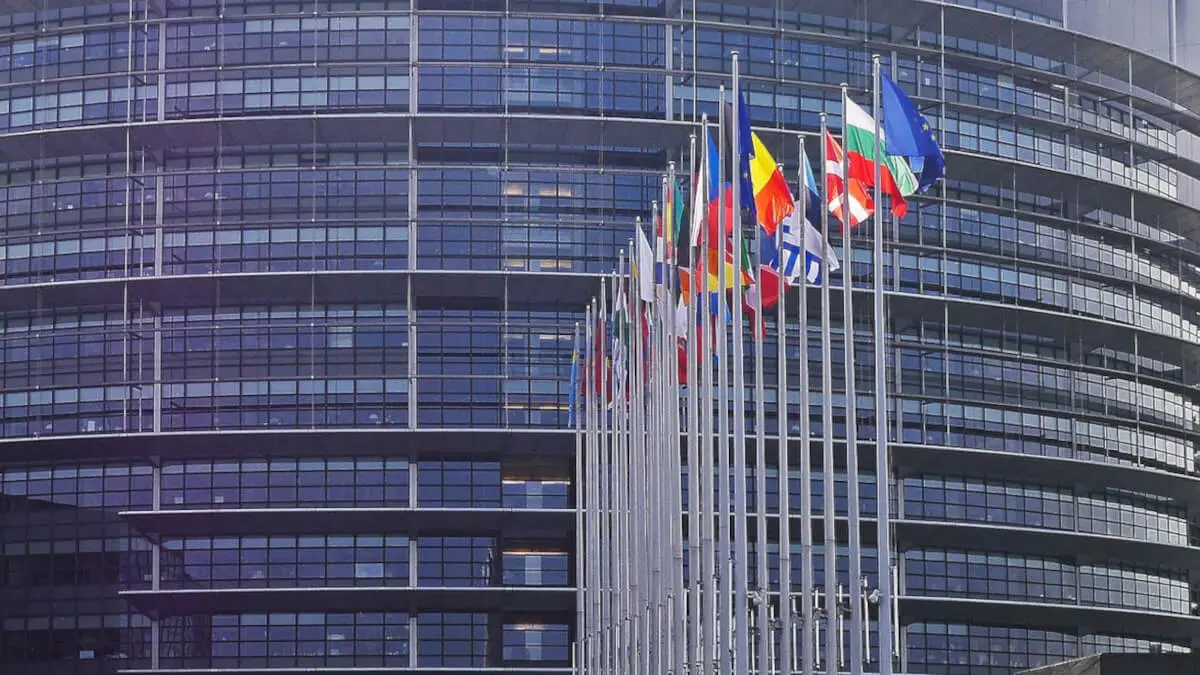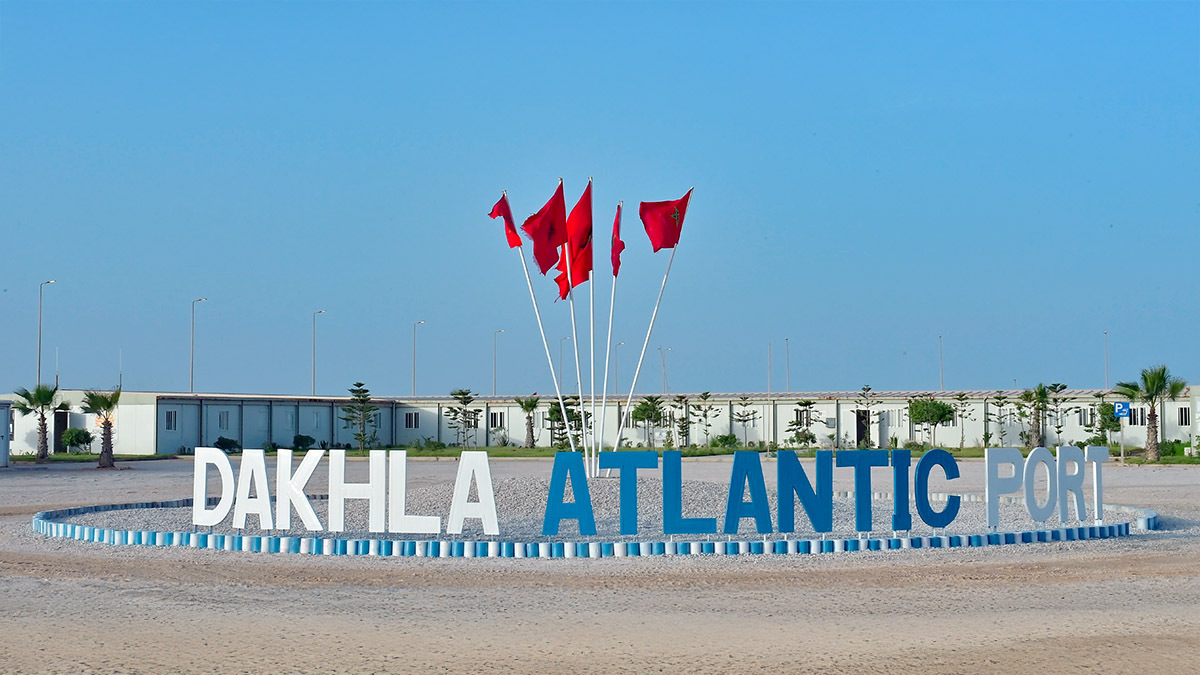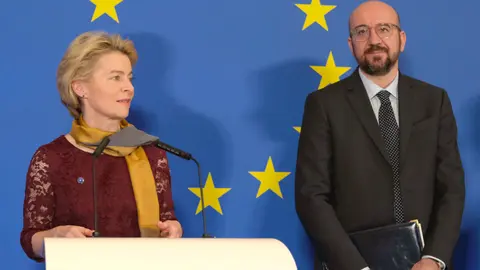The EU prepares to take relations with Morocco to a new level

Tensions between the European Union and Morocco reached a boiling point in October 2024, when the General Court of the EU annulled the agriculture and fisheries agreements between the two parties. The reason: these agreements also applied to the territory of Western Sahara without the consent of the Sahrawi people.
For the Polisario Front, which is fighting for the self-determination of the Sahara, the ruling was a resounding success, while for Morocco, the blow meant seeking alternative trading partners. Since then, the EU has opted for silence.
Similar scenes have been seen this year. In April, Ambassador Ubbi Bushraya, representative of the Polisario Front to the United Nations in Geneva, accused European airlines such as Transavia and Ryanair of establishing routes from Paris and Madrid to Dakhla, a city in Western Sahara under Moroccan control. According to the ambassador, this could have legal repercussions, as the Euro-Mediterranean aviation agreement between the EU and Morocco ‘does not apply to the airspace of Western Sahara.’ Once again, Brussels remains silent.
Despite the fact that in crisis situations the European Union tends to adopt cautious positions, its leaders continue to maintain an optimistic discourse. Following the cancellation of the agriculture and fisheries agreement, both the President of the European Commission, Ursula von der Leyen, and the High Representative for Foreign Affairs, Josep Borrell, insisted that relations with Morocco remained a priority for Europe, describing them as ‘long-standing, broad and deep’. This same tone was repeated in December, when the European Commissioner for the Mediterranean, Dubravka Šuica, described Morocco as ‘a key and reliable partner for the EU, in the Mediterranean region and beyond on the African continent’.

Preferred partners
The United Kingdom's recent support for the Moroccan autonomy plan, announced on Monday 2 June 2025, has intensified the debate on the individual positions of European countries towards Morocco. In this scenario, Spain and France stand out as the main interlocutors of the Alawite kingdom, recognising Morocco's Autonomy Plan for Western Sahara as the most serious and credible option for resolving the Sahrawi dispute.
In the case of Spain, since the adoption of the Roadmap in 2022, bilateral relations with Morocco have reached one of their ‘highest levels,’ according to President of the Government Pedro Sánchez. Morocco is now Spain's main trading partner outside the EU, and cooperation has been strengthened in strategic areas such as migration, the fight against terrorism, and customs issues in Ceuta and Melilla.
This alliance was further strengthened on 17 April, when Spanish Foreign Minister José Manuel Albares reiterated to Moroccan Foreign Minister Nasser Bourita Spain's support for the Autonomy Plan for Western Sahara. Albares also expressed Spain's interest in the future holding of a European Union-Morocco Council to take this strategic partnership to another level.
France, for its part, has been gradually strengthening its ties with Morocco. Following the letter sent by Emmanuel Macron to King Mohammed VI on 30 July 2024, in which he recognised the autonomy plan as ‘the only credible basis’ for resolving the Sahara conflict, Paris has intensified its commitment. In April 2025, it publicly reaffirmed this position, and in February it signed multiple cultural agreements during the official visit of French Culture Minister Rachida Dati.
The rapprochement of several influential EU states with Morocco could push the bloc to follow a similar strategy.

A new path?
Last week, the EU, represented by diplomat João Cravinho, visited Rabat, exemplifying a clear attempt by Brussels to materialise long-praised cooperation. This may be because Morocco appears to be a perfect gateway to the Sahel.
The growing influence of actors such as Russia and China in the region has caused concern in Europe. There is a possibility that these world powers could fill a vacuum left by the West after years of irregular interventions and troop withdrawals.
Since joining the EU in November 2024, Cravinho has sought to maintain dialogue with Niger, Burkina Faso and Mali. These countries, ruled by military governments, which left the Economic Community of West African States (ECOWAS) in January this year, have entered a complex crisis marked by instability and insecurity.
These Sahel governments have declared their commitment to combating jihadist groups through a new regional alliance, a goal they share with Rabat. In fact, analyst Al-Sharqawi Al-Rudani warns that ‘there is no doubt that terrorist groups also have Morocco in their sights as part of a broader destabilisation strategy aimed at opening a breach towards Europe’. In this regard, Morocco represents a key line of containment against cross-border jihadist flows, making it a strategic partner in European efforts to restore stability in the Sahel.

On the economic front, Morocco has strengthened its role as a key regional player. At the same time, Rabat has promoted infrastructure initiatives that seek to integrate the Sahel countries economically. One of these is the proposal to connect the port of Dakhla, a coastal city in Western Sahara under Moroccan control, with N'Djamena, the capital of Chad, via logistics corridors that would cross Mauritania, Mali and Niger.
This move is linked to the important Atlantic Initiative promoted by Morocco, which aims to facilitate access to the Atlantic Ocean for Sahel countries in order to boost their economies and trade relations, a plan that is undoubtedly very favourable for the Sahel countries, which are beset by difficult economic situations.
From a European perspective, Morocco represents a reliable partner in facilitating diplomatic re-engagement in a region marked by volatility. Its geographical proximity, relative stability and strong relations with both Europe and the Sahel position it as a strategic bridge.










